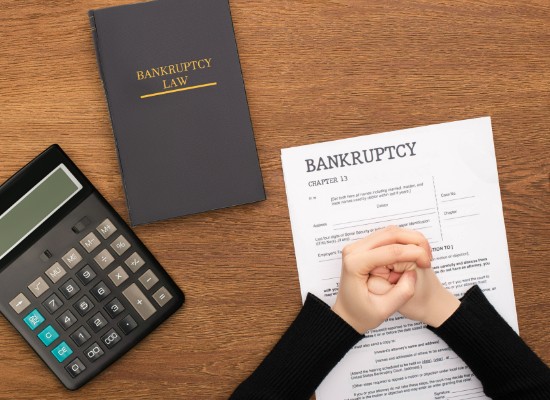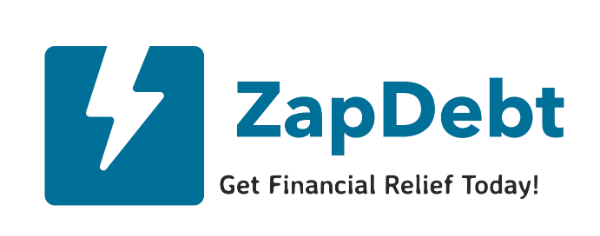In today’s struggling economy many South Africans are filing for bankruptcy. While bankruptcy might feel like the only option there might be better roads to financial stability. Get expert advice for you or your business. Make the right choice with Expert Advice from a Zap Debt partner. Know the options and make the right choice. Consulting with a ZapDebt partner will benefit you in the following ways.
- Understanding Your Options
- Strategic Financial Planning
- Legal Protection
- Personalised Solutions
Desiring a fresh start and a clearer financial horizon? Reach out to ZapDebt today, and a Bankruptcy Advice Specialist will be in touch promptly.
Understanding Bankruptcy: The Basics
Bankruptcy, or sequestration as it’s known in South Africa, is a legal procedure that allows individuals or businesses to either restructure or eliminate their debts. It’s essential to differentiate between voluntary and compulsory sequestration:
- Voluntary Sequestration: Initiated by the debtor themselves when they realise they can’t meet their financial obligations.
- Compulsory Sequestration: Initiated by the creditors when they believe the debtor is insolvent and unable to repay their debts.
The Role of a Bankruptcy Lawyer
Navigating the intricate waters of bankruptcy can be daunting. This is where a bankruptcy lawyer steps in, acting as a beacon of guidance and support. Their role is multifaceted:
- Legal Guidance: A bankruptcy lawyer provides invaluable advice on the nuances of the bankruptcy process, helping clients understand their rights, the implications of their decisions, and the potential outcomes of their case.
- Document Preparation: From filing petitions to drafting necessary legal documents, the lawyer ensures that all paperwork is in order, reducing the risk of errors that could jeopardise the case.
- Court Representation: Bankruptcy proceedings involve legal hearings. A lawyer represents the client in court, presenting their case and defending their interests.
- Negotiation with Creditors: One of the pivotal roles of a bankruptcy lawyer is to negotiate with creditors. They work towards favourable terms, potentially reducing the debt or restructuring repayment plans.

Choosing the Right Insolvency Attorney
The journey through insolvency is challenging, but with the right attorney, it becomes more manageable. Here’s how to ensure you pick the best:

- Experience Matters: An attorney with a rich history in handling insolvency cases will be better equipped to navigate the complexities and offer sound advice.
- Reputation in the Industry: Word of mouth, online reviews, and recommendations can provide insights into an attorney’s credibility and success rate.
- Transparent Communication: A good attorney will be upfront about their fees, the expected outcomes, and potential challenges. They’ll maintain open channels of communication, ensuring you’re always in the loop.
- Specialisation: Insolvency is a specialised field. Ensure that the attorney you choose focuses on bankruptcy and has a deep understanding of the associated laws and procedures.
Rehabilitation and Credit Clearance
After undergoing sequestration, there’s a light at the end of the tunnel: rehabilitation. Here’s what you need to know:
- What is Rehabilitation? It’s a legal process that releases individuals from the obligations and restrictions of sequestration, marking the end of the bankruptcy journey.
- The Road to Rehabilitation: The process can commence as early as 10 months post-sequestration, provided certain conditions are met. However, if not initiated by the debtor, it automatically occurs after a period, typically 10 years.
- Credit Clearance: Post-rehabilitation, it’s essential to rebuild one’s credit profile. This involves working with credit bureaus to ensure accurate reflection of financial status, settling outstanding debts, and adopting responsible financial habits.

SARS and Bankruptcy
The relationship between bankruptcy and the South African Revenue Service (SARS) is intricate:

- Outstanding Tax Debts: Bankruptcy doesn’t absolve one from tax obligations. SARS remains a preferential creditor, meaning they’re prioritised during the distribution of a bankrupt estate’s assets.
- Tax Implications: Sequestration can have tax consequences. For instance, the date of sequestration is deemed the end of the tax year for the insolvent, necessitating a tax return for the shortened year.
- VAT Registrations: Businesses undergoing bankruptcy might face the cancellation of their VAT registration, impacting their operations.
- Engaging with SARS: It’s crucial to maintain open communication with SARS during insolvency. This ensures compliance, reduces potential penalties, and fosters a cooperative relationship during a challenging period.
Certainly! Here’s the revised introduction and the new section tailored to Bankruptcy Services:
Introduction to Bankruptcy Advice Service
In today’s complex financial environment, the shadow of debt looms large, casting uncertainty over many South Africans. As financial burdens mount, an increasing number of individuals are searching for avenues to reclaim their financial stability. In this context, the notion of seeking “Bankruptcy Advice” stands out as a guiding light, providing a structured approach to navigate these turbulent waters. Opting for professional bankruptcy advice can transform your financial trajectory in significant ways:
- Understanding Your Options: Gain clarity on the various routes available to you, ensuring you make informed decisions.
- Strategic Financial Planning: Benefit from expert insights to map out a sustainable financial future.
- Legal Protection: Navigate the legal intricacies of bankruptcy with confidence, knowing you’re well-represented.
- Personalised Solutions: Receive advice tailored to your unique financial situation, ensuring optimal outcomes.
Desiring a fresh start and a clearer financial horizon? Reach out to ZapDebt today, and a specialist in Bankruptcy Advice will be in touch promptly.
How Much do Bankruptcy Lawyers Charge?
Bankruptcy Lawyers generally charge between R800 and R2500 per hour. Typical services are charged at
- Initial Consultation Fee: R500 to R1,500 per hour.
- Filing Fees: Around R1,000 to R2,000.
- Legal Fees: R5,000 to R20,000 depending on the complexity.
- Court Costs: Approximately R1,500 to R3,000.
- Additional Expenses: Costs for documentation, postage, and other miscellaneous expenses.
Follow this link to our Bankruptcy Lawyer Pricing page to know more.
Why Choose a ZapDebt Partner for your Bankruptcy Services?
Bankruptcy is a complex realm, fraught with challenges and decisions that can shape your financial future. That’s where ZapDebt steps in. We’ve meticulously curated a network of the finest Bankruptcy Advisors in South Africa, ensuring you receive top-tier guidance. Here’s why considering a ZapDebt partner for your bankruptcy services is a wise choice:
- Comprehensive Expertise: Our partners bring a wealth of knowledge, demystifying the complexities of bankruptcy for you.
- Tailored Solutions: Every financial situation is unique. Our partners recognise this, crafting strategies that align perfectly with your needs.
- Transparent Processes: With ZapDebt, there are no hidden agendas. Our partners operate with transparency, ensuring you’re always in the know.
- Future-Proofing: Beyond immediate solutions, our partners equip you with the tools and insights to maintain long-term financial health.
- Trust and Reliability: In the challenging journey of bankruptcy, having a trusted advisor by your side makes all the difference. Our partners are committed to your best interests.
If you’re grappling with the complexities of bankruptcy and yearn for clarity and direction, consider our expert bankruptcy services. Our partners stand ready to illuminate your path, guiding you towards a brighter financial future.
Frequently Asked Questions (FAQs) on Bankruptcy Services
What exactly is bankruptcy?
Bankruptcy is a legal status where an individual or entity cannot repay the debts they owe to creditors. In South Africa, it’s often referred to as sequestration.
How does bankruptcy differ from debt review or debt restructuring?
While both bankruptcy and debt review aim to assist those in financial distress, they are distinct processes. Bankruptcy involves the legal declaration that one cannot pay their debts, leading to potential asset liquidation. Debt review, on the other hand, is a structured process where a debt counsellor negotiates with creditors to establish a manageable repayment plan.
Will all my debts be cleared if I declare bankruptcy?
Not necessarily. While many unsecured debts can be included in a bankruptcy, certain obligations like child support, alimony, and some tax debts might remain.
How long does bankruptcy remain on my credit record?
In South Africa, a bankruptcy (or sequestration) will typically remain on your credit record for a period of 10 years. However, with rehabilitation, this duration can be reduced.
What is rehabilitation in the context of bankruptcy?
Rehabilitation is the process through which an individual can be relieved from the restrictions of bankruptcy and have their credit record cleared. This typically occurs after a set period and upon meeting certain conditions.
Can I keep any of my assets if I declare bankruptcy?
It depends on the specifics of your case. Some assets might be exempt from liquidation, but generally, assets are sold to repay creditors. It’s essential to consult with a bankruptcy expert to understand the implications for your assets.
How does bankruptcy affect my employment?
Certain professions may have restrictions or conditions related to bankruptcy. It’s crucial to check with professional bodies or employers to understand any potential implications.
Why should I seek professional bankruptcy advice?
Bankruptcy is a complex legal process with long-lasting implications. Professional advice ensures you understand all options, consequences, and can make informed decisions about your financial future.
Can I apply for credit after declaring bankruptcy?
While it’s technically possible to apply for credit after bankruptcy, it can be challenging to secure approval, especially without demonstrating financial rehabilitation.
